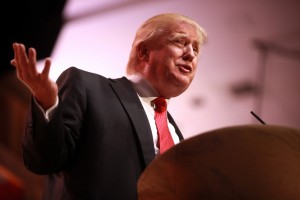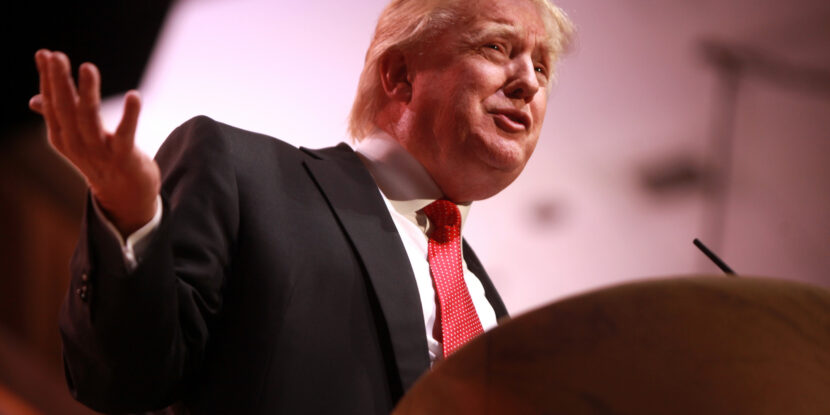
Remember that loyalty oath Donald Trump signed promising to support the Republican nominee no matter what? On Tuesday night, Trump told CNN he was reneging on that promise because he “has been treated very unfairly.”
That reversal could have serious electoral consequences.
Zeke Miller from Time reports:
Donald Trump’s announcement that he no longer stands by a pledge to support the GOP has thrown his hold on South Carolina’s 50 delegates in doubt.
The Palmetto State was one of several that required candidates to pledge their loyalty to the party’s eventual nominee in order to secure a slot on the primary ballot. Though Trump won all of the state’s delegates in the Feb. 20 primary, anti-Trump forces are plotting to contest their binding to Trump because of his threat on the pledge Tuesday.
The loyalty pledge is nothing new in South Carolina, where it has been required for decades, but took on new focus in light of Trump’s public musings about a third party run or withdrawing his support from the eventual nominee if he is stopped at a contested convention.
Miller spoke with South Carolina Republican Party Chairman Matt Moore, who seemed to indicate the delegates were in play.
“Breaking South Carolina’s presidential primary ballot pledge raises some unanswered legal questions that no one person can answer,” [Moore] told TIME. “However, a court or national convention Committee on Contests could resolve them. It could put delegates in jeopardy.”
When Trump filed for the ballot in South Carolina he signed a pledge stating to “hereby affirm that I generally believe in and intend to support the nominees and platform of the Republican Party in the November 8, 2016 general election.”
South Carolina has yet to select delegates to the convention and it is a state where Trump may already be on the defensive with delegates. South Carolina delegates to the national convention must have been delegates or alternates to the state’s 2015 GOP convention, a requirement that benefits candidates who appeal to the establishment.
Those delegates would be bound to Trump on the first ballot according to state and RNC rules. The challenge, which could only be filed once delegates are selected, would seek to allow them to be free-agents on the first ballot, thereby keeping Trump further from the key 1,237 figure he needs to secure the nomination. Similar challenges could also be filed in other states that added loyalty pledges.
Needless to say, if Trump loses South Carolina’s 50 delegates, it becomes infinitely harder for him to reach the needed 1,237 delegates to clinch the nomination on the first vote. And if it goes to a second vote, well … if you thought this presidential primary was a reality TV show, just wait for the season finale this summer at convention.
Jon Schweppe is Communications Director for the American Principles Project and can be followed on Twitter @JonSchweppe.


